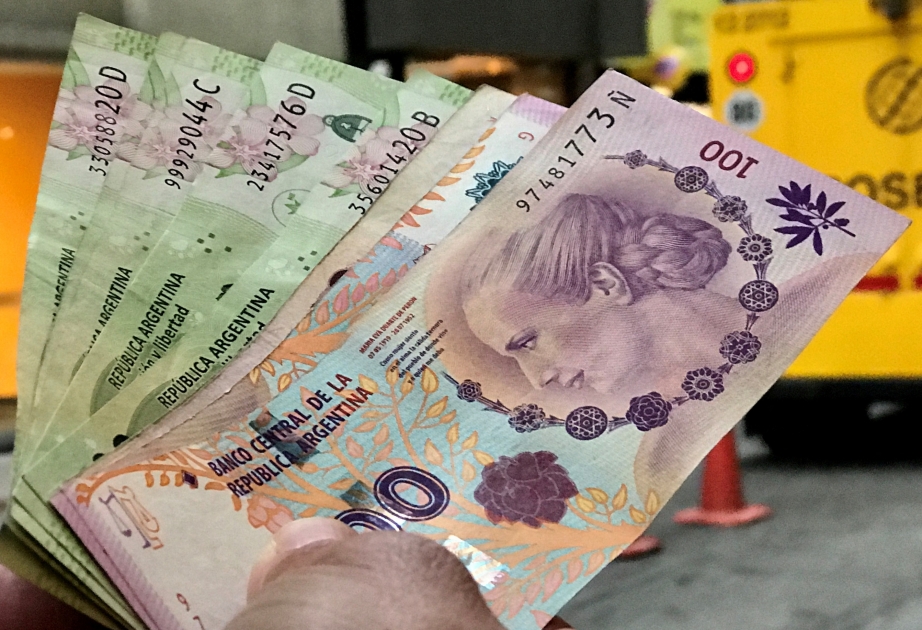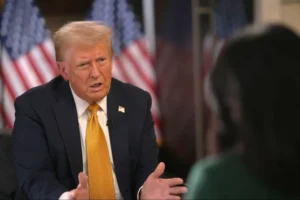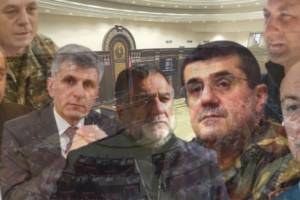Argentina’s new libertarian government will devalue the peso by about half, slash public spending and reduce energy and transport subsidies as it battles to contain an economic crisis and spiralling inflation, according to the Financial Times.
Economy minister Luis Caputo gave a summary of the measures in a televised message on Tuesday, in which he spoke at length on the South American nation’s dire situation but gave little detail. Transmission of his broadcast was delayed several times, with local media saying the minister was re-recording it, and no news conference was held afterwards.
“If we carry on as we are, we will have hyperinflation,” Caputo said in the address. Prices are expected to rise more than 200 per cent this calendar year. “Out of the last 123 years, Argentina ran a fiscal deficit in 113 . . . we have come to solve the addiction to fiscal deficits,” he added.
The broadcast marked the first major announcement by Javier Milei’s government since the president took office on Sunday. Milei, a self-styled “anarcho-capitalist” and former TV pundit, promised to take a “chainsaw” to Argentina’s state as part of radical shock therapy.
Caputo said the new government would move the official exchange rate to 800 to the dollar from levels just below 400 last week. Banks had already anticipated a sharp devaluation, but the new official level for the dollar was still some way below the black market rate of 1,045 on Tuesday.
Federal budget transfers to the provinces would be cut to a minimum and all new public works projects halted, the minister said. “There is no more money,” he repeated.
Caputo also announced a temporary rise in taxes on imports but promised to scrap the existing system of government permits for imports. Export taxes, which are hated by Argentina’s powerful farming lobby, will be removed once the economic emergency is over.
To offset the impact of the cuts on the more than 40 per cent of Argentines living in poverty, Caputo said the value of the government-provided food card would rise by 50 per cent and child benefits would double. The budget for one of Argentina’s largest welfare programmes, Potenciar Trabajo, would be frozen at 2023 levels.
The IMF, which is owed $43bn by Argentina, quickly welcomed the package. “These bold initial actions aim to significantly improve public finances in a manner that protects the most vulnerable in society and strengthen the foreign exchange regime,” the Washington-based lender said.
Nicolás Dujovne, who served as economy minister from 2017-19 during the centre-right government of Mauricio Macri, said Caputo’s announcement “lacked a lot of detail” but that other policy plans reported Tuesday night by local media — including the reversal of the previous government’s recent elimination of income tax — suggested the package would be “very pragmatic” and “[overall] positive.”
Fernando Marull, founder of Buenos Aires-based economic consultancy FMyA, said the package was “aggressive on fiscal and exchange rate policy”. The cuts target spending areas that make up 4.2 percentage points of gross domestic product, though he cautioned that in the absence of more detail the final impact was unclear.
Although Milei cultivated an eccentric and flamboyant image on the campaign trail, promising to close the central bank and scrap the peso for the US dollar, he has moderated his stance dramatically since winning the election last month. Investors and diplomats who were initially alarmed by Milei’s radical positions have warmed to his new image, hoping he can build a broad political alliance to get his economic reform measures through congress, where his party has only a small minority of seats.
Source: AZERTAC





